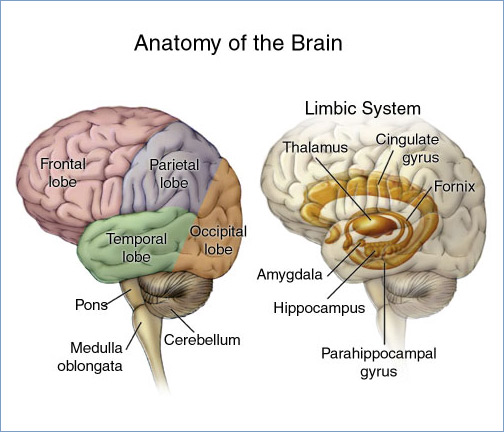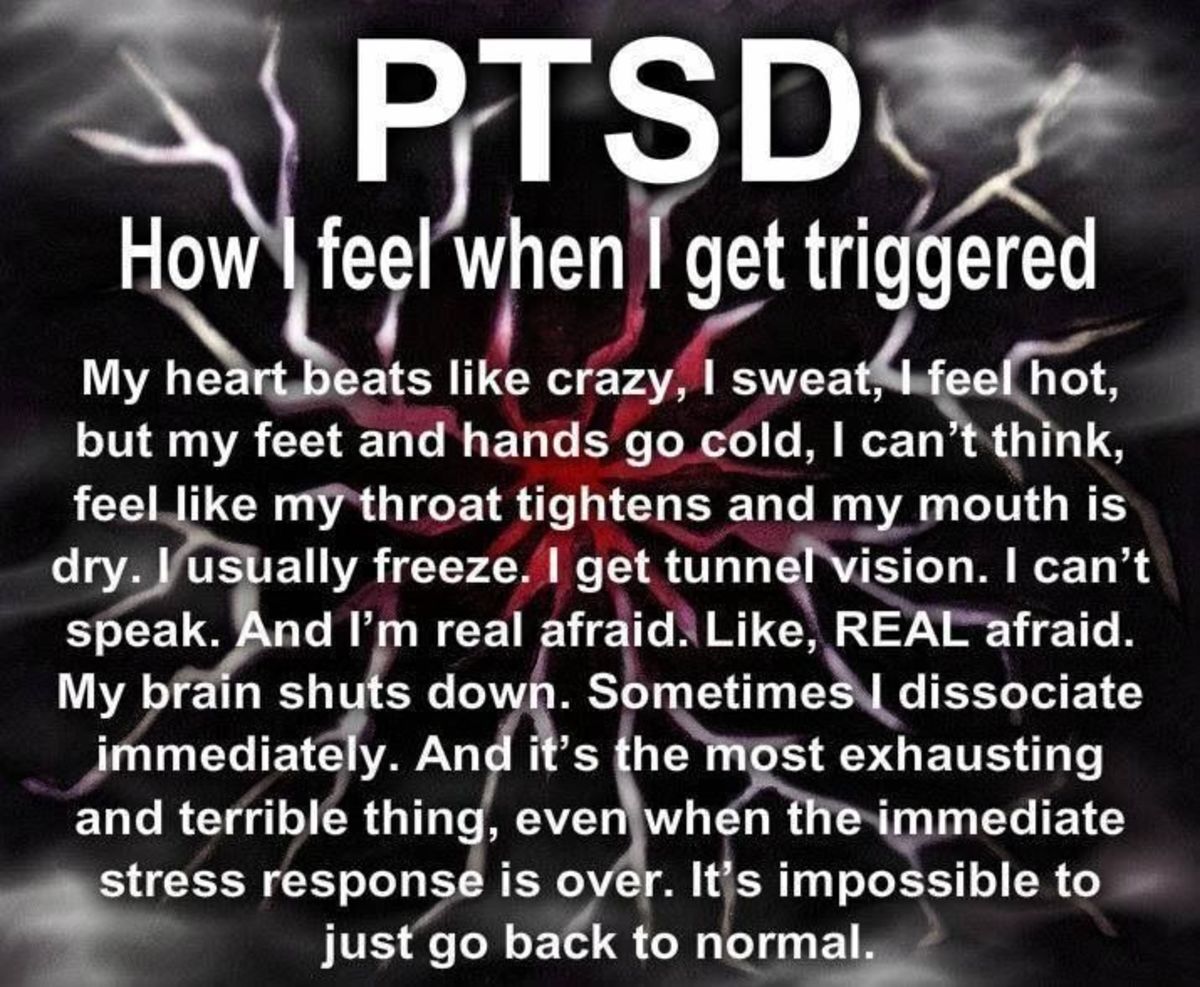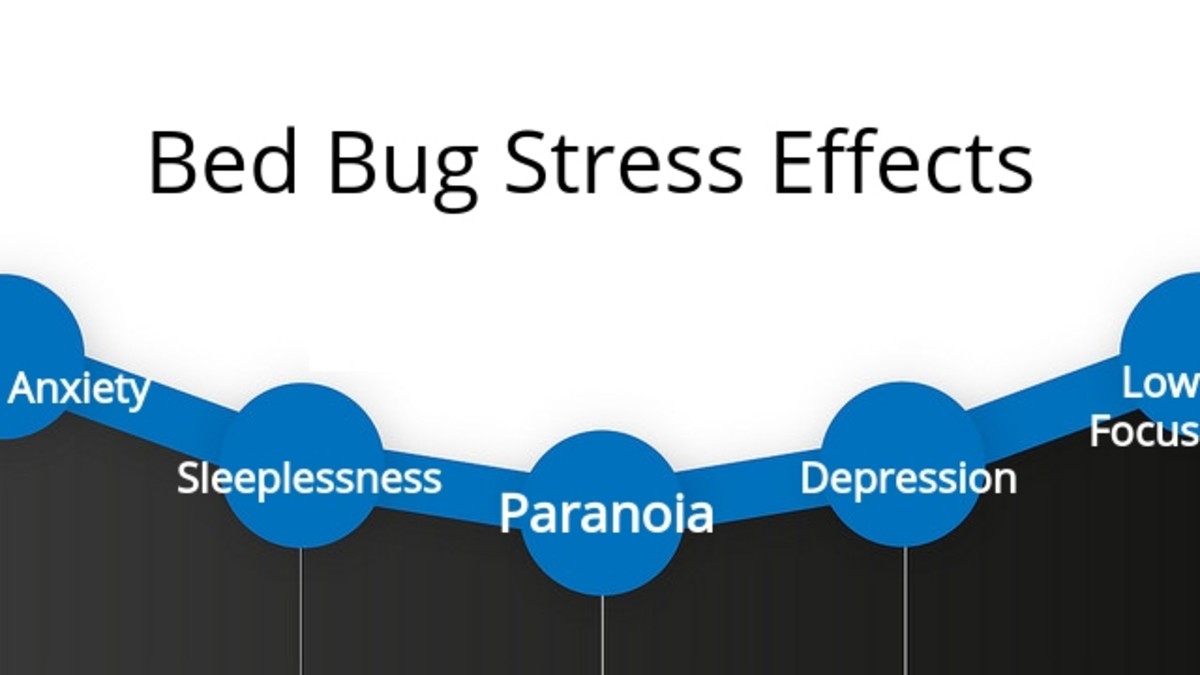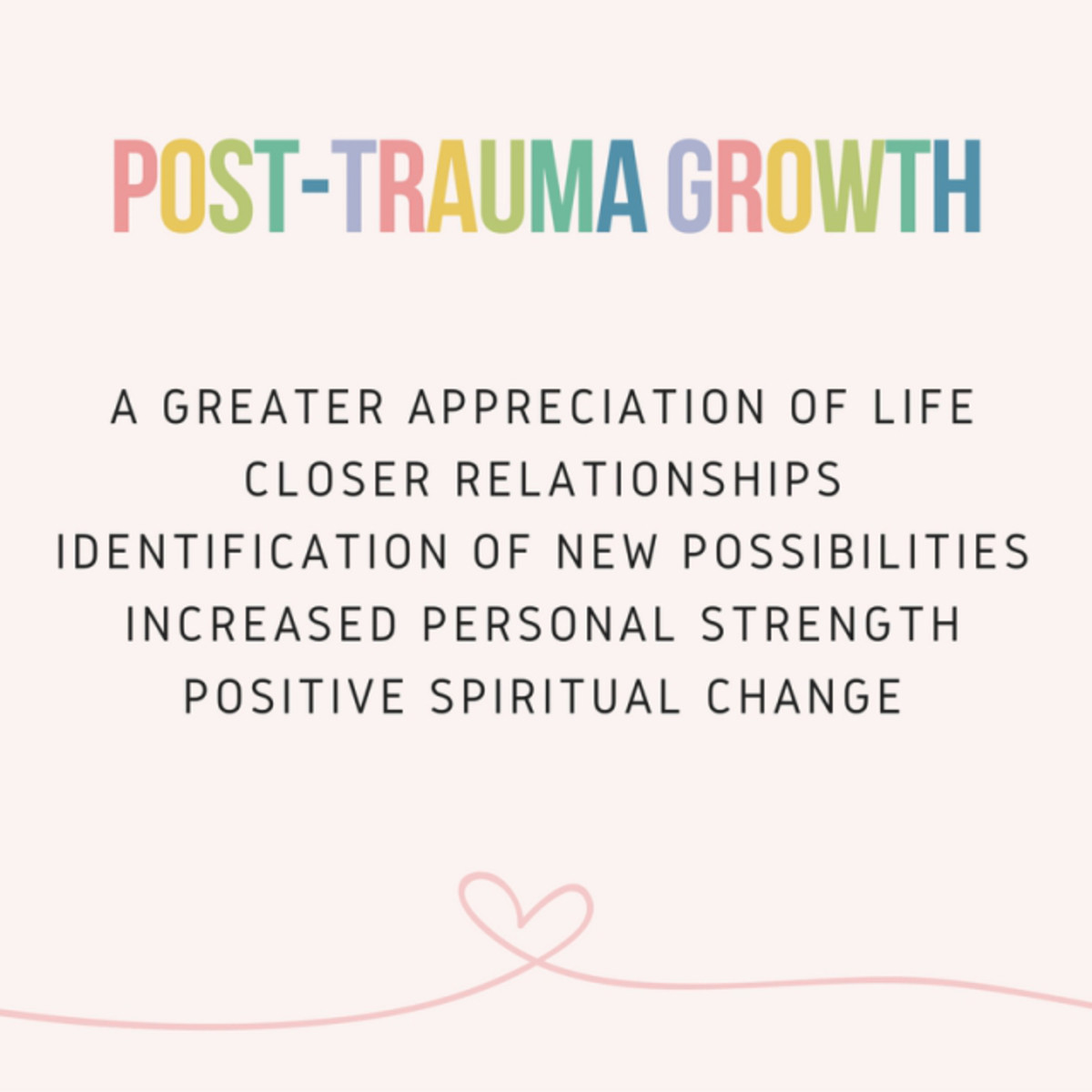- HubPages»
- Health»
- Mental Health»
- Anxiety Disorders
Lessons from Living with PTSD
What is PTSD?
PTSD, or Post-Traumatic Stress Disorder, is a condition that occurs when a person has suffered one or more traumatic events. That person may experience a number of symptoms, including but not limited to nightmares, disrupted sleep or insomnia, flashbacks, hypervigilance, exaggerated startle response. avoiding situations that remind the person of the trauma, or even a general loss of interest in life itself.

Why Does PTSD Occur?
Our brains are designed, among many other tasks, to protect us from danger. When a person experiences a traumatic event, the brain responds with learning that that particular situation is dangerous, so the brain is doing its job. That learning should generalize to similar situations, so when a similar situation is encountered, the person will know to avoid it. However, this is an unconscious process, and so often things which are present at the time of the trauma but unrelated to the danger can be incorporated into the brain's warning system. Thus, symptoms of PTSD can be triggered not only by a relevant stimulus (the presence of a gun to someone who has been shot) but also sights, sounds, smells, colors, and other things irrelevant to the danger. Even hearing or seeing something in the news can trigger the symptoms.
Remember, this is not a bug, it's a feature. It's intended to keep us safe!

An estimated 7.8 percent of Americans will experience PTSD at some point in their lives, with women (10.4%) twice as likely as men (5%) to develop PTSD. About 3.6 percent of U.S. adults aged 18 to 54 (5.2 million people) have PTSD during the course of a given year.
Source: ptsd.ne.gov/what-is-ptsd.html
Have you suffered symptoms of PTSD?
Who Has PTSD?
In dealing with my own PTSD, I was stunned at the number of traumatic experiences I have had. I've led a relatively quiet and normal life, and yet I've experienced literally hundreds of traumas: unwelcome sexual advances; bullying, name-calling, mobbing, and abuse from employers; breaking bones; surgeries; and even being present during an armed robbery. If you consider that I probably have led a fairly average life, that means that many people have had the opportunity to develop PTSD, even if they are relatively asymptomatic. Because symptoms can occur months, years, or even decades later, it's clear that PTSD is quite probably greatly underreported.
Do You Know Someone with PTSD?
PTSD Generalization
In learning to protect people from dangerous situations, sometimes the brain generalizes. Similar situations that may not have been traumatic in themselves are sometimes associated with a traumatic event, and so those previously non-traumatic situations are now traumatic, and all the other indicators that were present in the other situations are now potential triggers of PTSD symptoms.
Many of us have had the experience of eating a favorite food, and a short time later falling ill to an unrelated stomach bug. Then the next time you have that food, it's suddenly unappetizing and you can't eat it. That's your brain generalizing the unpleasant experience (falling ill) with the food you ate. The food didn't cause the stomach bug, but your brain has made the association.
And this is the way that the brain generalizes all traumatic experiences. Otherwise, you would have to learn each situation independently! For example, say you were in an incident in grade school that was not traumatic. Later in life you undergo a traumatic experience similar to the one in grade school. Your brain notes the similarity between the two situations, and now the previous incident has been reclassified by your brain to be a traumatic experience because of the similarity. Or the reverse happens: you experience a traumatic incident in grade school, and later on in life a similar but not traumatic event occurs, but the brain notes the similarity and now the later event is classified as traumatic too.
When Someone You Know Has PTSD: What Not to Do
Do not:
- Ask what happened. Even thinking about the incident can trigger symptoms. If the person volunteers it, fine. If symptoms are triggered, they are sometimes not immediate. You don't want symptoms to be triggered when the person who has PTSD is driving home later on the freeway—that could be dangerous to everyone. If you want to help the person, read on. If you're merely curious, remember that even hearing about a traumatic event can cause or trigger PTSD—you could be affected yourself.
- Offer advice. Leave this to the professionals. It's great if you want to help, but telling someone they have to forgive someone, or they need to relax and calm down, or not think about it any more (impossible, and remember, that's not a bug, that's a feature!) isn't helpful. Neither is offering treatments you may have heard or read about, or even tried yourself. Nobody knows enough about PTSD to cure it definitively.
- Challenge them or dismiss or trivialize their symptoms. Just because you haven't seen incontrovertible evidence for the condition doesn't mean that you are qualified to diagnose this condition. Remember, there's a lot of stigma associated with having PTSD and people may be unwilling to discuss it in detail for a variety of reasons.

When Someone You Know Has PTSD: What to Do
- Offer to listen. Accept it if they don't take you up on your offer. It doesn't necessarily mean they don't trust you; there might be many reasons for that moment not being the right time or place.
- Give the person some space if they need it.
- If the person requests something that seems silly, remember that your favorite shirt or the smell of your dinner might remind them of the traumatic event.
- Ask "Is there something I can do to help?" Accept "no" gracefully.
If You Have PTSD
You are not required to :
- Share details of the traumatic event. How you choose to refuse is up to you: you can merely shake your head, or reply with something appropriate to the situation. It is not your job to entertain others.
- Accept advice. Again, shake your head, or say, "Thank you for your concern [but that's not helpful]." You don't need to go into details.
- Discuss your symptoms. If you choose to share, fine. That is your decision and you have no need to justify it to anyone.
Do:
- Be wary. There are many people who will seem to offer friendship but have an agenda. They prey on vulnerable people for their own ends, whether financial or political.
- Seek help if appropriate and available.
- Keep up with new treatments.
- Learn to deal with your symptoms, and realize that those symptoms are doing what they are designed to do, which is to keep you safe. Your brain may be going overboard at times, but the system is working as it was intended.
- Respect yourself. You're not crazy. There's nothing wrong with you. Your brain is doing its best to keep you safe.
© 2018 progressivist








